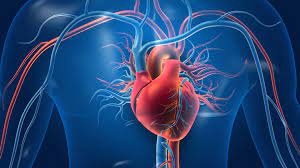Exocrine Pancreatic Insufficiency (EPI) can raise numerous questions for individuals affected by the condition. This FAQ guide addresses common queries, providing comprehensive and accurate information to enhance understanding and help those dealing with EPI manage their health effectively.
FAQs:
Q1: What is Exocrine Pancreatic Insufficiency (EPI)? A: EPI is a condition where the pancreas fails to produce sufficient enzymes needed for proper digestion, leading to difficulties in breaking down and absorbing nutrients from food.
Q2: What Causes EPI? A: EPI can be caused by various factors, including chronic pancreatitis, cystic fibrosis, and certain genetic conditions. In some cases, it can result from surgical removal of the pancreas or certain medications.
Q3: What Are the Symptoms of EPI? A: Common symptoms of EPI include frequent diarrhea, bloating, gas, weight loss, and malnutrition. Individuals may notice undigested food particles in their stools.
Q4: How Is EPI Diagnosed? A: EPI is diagnosed through a combination of medical history, physical examination, and diagnostic tests such as fecal elastase test, blood tests, and imaging studies like CT scans or MRIs.
Q5: What Is the Treatment for EPI? A: Treatment usually involves enzyme replacement therapy (ERT), where individuals take pancreatic enzyme supplements with meals to aid digestion. Dietary adjustments and managing underlying conditions are also important.
Q6: Can EPI Be Prevented? A: EPI resulting from genetic conditions or medical procedures may be challenging to prevent. However, managing risk factors such as avoiding excessive alcohol consumption and seeking treatment for related conditions like pancreatitis can be beneficial.
Q7: How Can I Manage EPI for Optimal Health? A: Managing EPI involves a combination of enzyme replacement therapy, following dietary recommendations, staying hydrated, and working closely with healthcare providers to monitor nutrient absorption and overall health.
Conclusion: Exocrine Pancreatic Insufficiency (EPI) is a complex condition that can raise numerous questions. By understanding its causes, symptoms, diagnosis, treatment options, and management strategies, individuals with EPI can take proactive steps to lead healthier lives and improve their overall well-being.
FAQs: Q1: Can EPI be cured? A: While EPI may not be curable, it can be effectively managed with appropriate treatment and lifestyle adjustments.
Q2: Can EPI lead to other health complications? A: Yes, untreated EPI can lead to malnutrition, weight loss, and other digestive complications. Proper management is important to prevent these issues.
Q3: Can EPI affect children? A: Yes, EPI can affect individuals of all ages, including children. It may be associated with conditions like cystic fibrosis in pediatric cases.
Q4: Can dietary changes help manage EPI? A: Yes, dietary adjustments can play a crucial role in managing EPI. Working with a registered dietitian can help tailor a diet that supports nutrient absorption and digestive health.
Q5: Is EPI a common condition? A: EPI is relatively rare, but its prevalence varies based on underlying causes. It’s important to consult healthcare providers for an accurate diagnosis and treatment plan.








